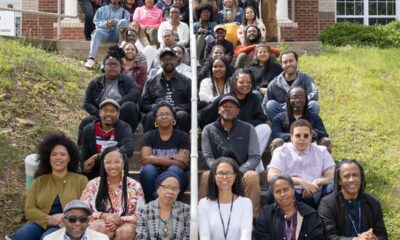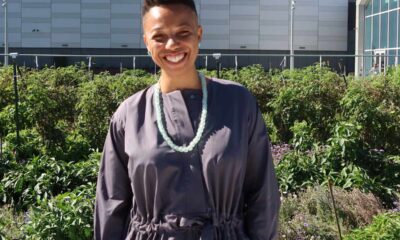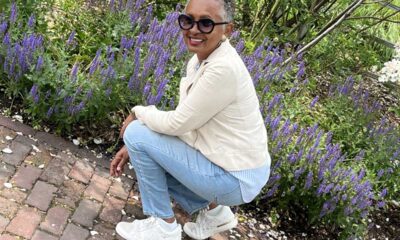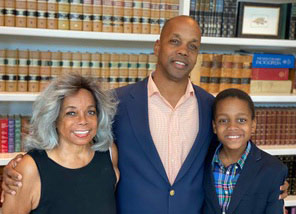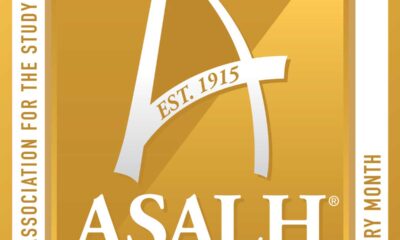Editorial
The Family Legacy of Roosevelt Weatherspoon
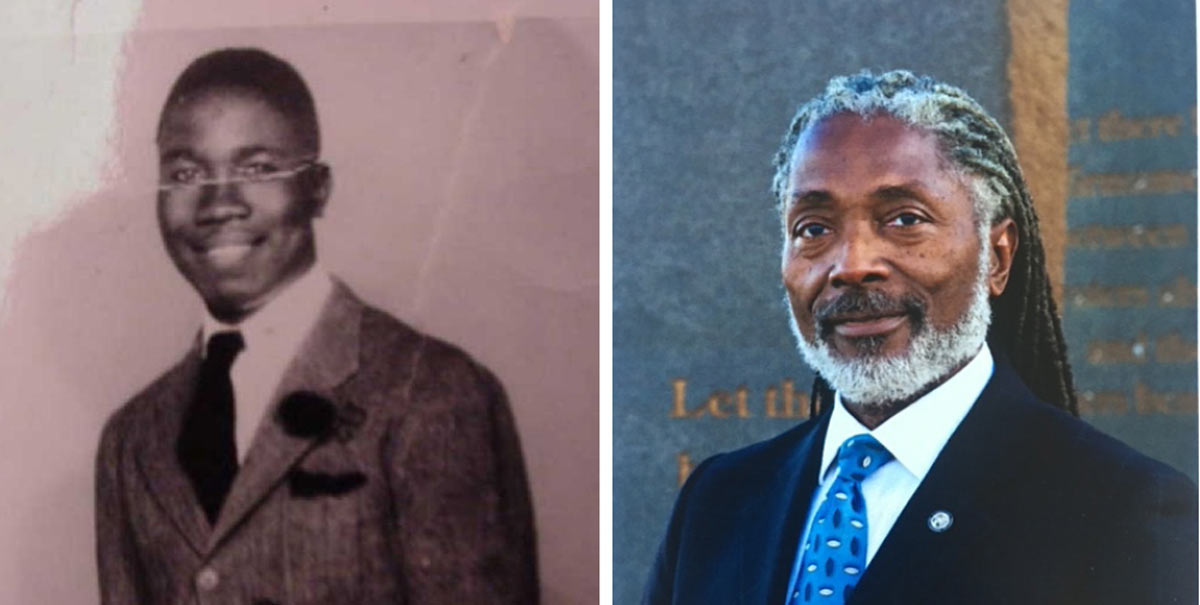
For Graham Weatherspoon, his father Roosevelt Weatherspoon continues to inspire him. Although he lost his father as a young child, his legacy as a soldier, electronics engineer, executive, parent and provider continues to influence Graham’s life. Graham, a retired NYPD Detective and motivational speaker, spoke to Our Time Press about his father, a World War II vet, for OTP’s special Black Veteran Series. – Fern Gillespie
My father Roosevelt Weatherspoon was born in Cairo, Georgia on June 9, 1924. He was one of 13 children raised by his father Archie Weatherspoon, a sharecropper who never learned to read or write and never voted a day in his life, and Grace, a midwife. They lived in a house that my grandfather built on part of a tree trunk to close up the corner of the house. My father would say they would pick peaches “from can’t see in the morning until can’t see at night.” My grandfather worked hard and protected his family.
In Cairo, my grandfather once pulled his gun out on a white merchant, cheating him out of his money. My grandfather pulled his pistol, and he said, “If you steal from me that’s one thing, but if you think you’re going to steal from my wife and my children, I’m going to shoot you right now. I might not know how to read or write, but I can do math better than any white man alive. Now give me the correct money, or I’ll kill you. We are not going to have this happen again.”
Although he never went to school, my grandfather was very particular about his children getting an education. Most of his children went to college and his grandchildren went to colleges across the country. My brother Russell went to Harvard and I attended CCNY. My father attended Morris Brown College, a HBCU in Georgia, to study electronics. After Pearl Harbor, he decided to enlist in the Army. All of my uncles either served in the Army or the Air Force. During the war and after, my father was a MP at Fort Myers. My mother Olive was working in Washington, DC to help her mother. My mother had a scholarship to Columbia University in 1940, but she couldn’t take the scholarship because she couldn’t afford to stop helping her mother. She worked in an office in a Washington secretarial pool. She met my father at the USO club. I had seen the letters that they wrote and she had played hard to get. When my father was at Fort Meyers, a man made a comment about his mother and my father mashed the guy’s skull in with his baton. My father wound up in the brig for assaulting the G.I. When my mother went to see him she wasn’t able to visit because he was locked up.
During World War II, my father had orders to go overseas and he wound up in Africa with General George Patton.
They were fighting against the German General Rommel, known as the Desert Fox. My father was involved in communications and electronics. When he was in Africa, my father visited Liberia where he met the other Weatherspoons. There were many people in my family who left this country and went back to Africa where Liberia was founded. As a matter of fact, when my cousin Kenneth was in the Navy he visited Monrovia and a guy met him on the street saw his name, and took him to meet the president of Liberia. In Liberia, my father made a lot of contacts political and otherwise. He visited rubber plantations, like Firestone, and there were Weatherspoons involved in those transactions at those plantations.
According to family lore, In 1919 my grandmother Grace was the midwife who delivered her cousin’s son Jackie in Cairo. After a failed marriage, her cousin Mallie moved to California with her children. Jackie went to UCLA and was a Track Star. During World War II, he served as a lieutenant in the army in the 761 Tank Battalion, which was a Black tank battalion that liberated a number of Jews in the concentration camps in Germany. But Jackie never got overseas. He had refused to give his seat to a white captain on a bus on a military base in the South and he was brought up on charges. They sought to court martial him, But, he was exonerated for of all charges. By the time that was through, the war was over. He went on to play baseball for the Kansas City Monarchs and then with the Brooklyn Dodgers. After signing a deal with Branch Rickey. My father’s cousin Jackie Robinson became the first Negro baseball player in Major Leagues Baseball.
My grandmother also delivered Jackie’s older brother Mack Robinson, who was in Germany in the 1936 Olympics. Mack came in second place in the 100-meter dash against Jesse Owens. Mack got the silver metal. Adolf Hitler exited the stadium rather than be present to see these two, black men take the gold and the silver medals.
My father wound up in Japan and I was told he sustained a head injury in the Battle of Okinawa. One thing my father said was that if a Black G.I. was wounded, he would have to wait until all the white G.I.s were taken care of and given blood. If there was anything left, then you got treated. The Red Cross took care of white people first. As a child, I remembered my father’s head injury. I remember my father having seizures.
When my father came back to New York, his parents and the other siblings were living in Brooklyn. We lived in East New York. I have pictures of my father with Ralph Bunche, who was ambassador to Liberia from 1952 to 1953. White soldiers were telling my father about jobs. Subway fare was five cents, but he did not have the money. So, he would walk from East New York to Midtown for a job interview. But, there were no jobs available to Black GIs. There were jobs available only for white people.
Ultimately, he got a job at Fairchild Camera & Instruments, an electronics company in Syosset, Long Island. Fairchild did a lot of work for the government with aerial surveys and airplanes. My father bought A 1953 Plymouth coupe and drove to work every day with his suit and attaché case. People thought he was a numbers banker!
My father went out to Levittown on Long Island to buy a house. Levitt was building houses for veterans from the Second World War. When my father went out there, they told him we are not selling houses to N—,So get out. Red lining. was in full effect and it was a government program. The federal government supported segregation and discrimination. They built homes and made millions of dollars and no Black people could buy homes because they were built in areas that were traditionally segregated.
When my father suddenly died, he was 29 years-old. I was four years old, my brother was three years old and my sister was eight years old. The federal government told my mother they had no records of my father’s head injury in Okinawa. That all the records were lost. Basically, they were not interested. I don’t know what the death benefit was during the Second World War, it was probably $10,000. They didn’t want to give my mother the money and they didn’t. They are perks that come with certain awards as a result of a family that has served. My oldest son, Sean, is a disabled veteran. So, his children’s college education has already been paid for. That should’ve been our scenario as children. But it was not. We got Social Security, but we didn’t get the benefit of going to college for free. And the benefits of being a Gold Star Family.


